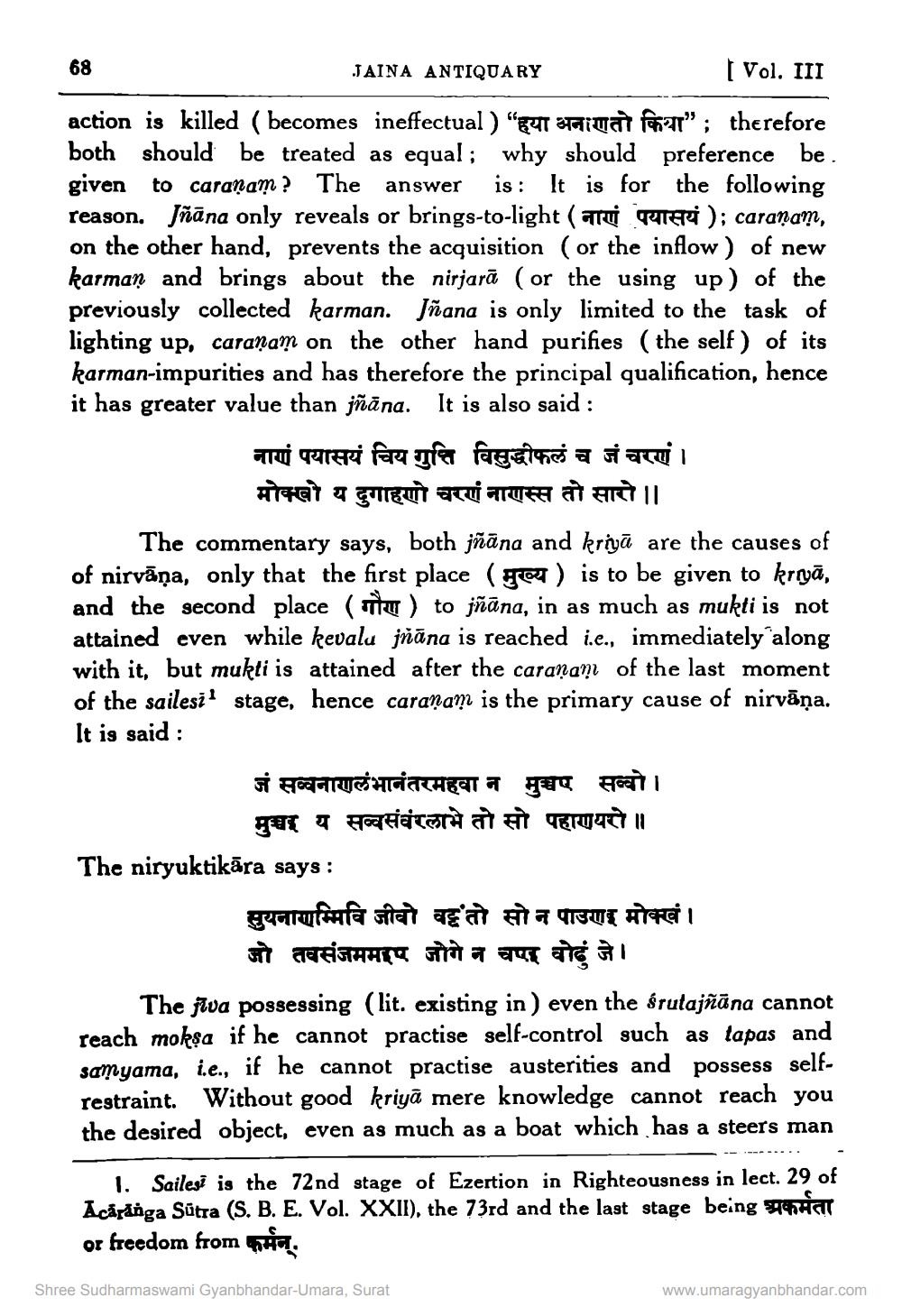________________
JAINA ANTIQUARY
[Vol. III action is killed ( becomes ineffectual ) "get iua ferer"; therefore both should be treated as equal; why should preference be given to caranam? The answer is: It is for the following reason. Jñāna only reveals or brings-to-light ( Tru PTI ); caranam, on the other hand, prevents the acquisition (or the inflow) of new karman and brings about the nirjarā (or the using up) of the previously collected karman. Jñana is only limited to the task of lighting up, caraṇam on the other hand purifies (the self ) of its karman-impurities and has therefore the principal qualification, hence it has greater value than jñāna. It is also said :
नाणं पयासयं चिय गुत्ति विसुद्धीफलं च जं चरणं ।
मोक्खो य दुगाहणो चरणं नाणस्स तो सारो।। The commentary says, both jñāna and krijā are the causes of of nirvāṇa, only that the first place (grey) is to be given to krryā, and the second place () to jñāna, in as much as mukti is not attained even while kevalu jñāna is reached i.e., immediately along with it, but mukti is attained after the caraṇam of the last moment of the sailesil stage, hence caraṇam is the primary cause of nirvāņa. It is said :
जं सवनाणलंभानंतरमहवा न मुञ्चए सव्वो।
मुच्चर य सव्वसंवंरलाभे तो सो पहाणयरो॥ The niryuktikāra says:
सुयनाणम्मिवि जीवो वट्टतो सो न पाउणइ मोक्खं ।
जो तवसंजममइए जोगे न चपर वोढुं जे। The frua possessing (lit. existing in ) even the śrutajñāna cannot reach mokṣa if he cannot practise self-control such as lapas and samyama, i.e., if he cannot practise austerities and possess selfrestraint. Without good kriyā mere knowledge cannot reach you the desired object, even as much as a boat which has a steers man
1. Sailesi is the 72nd stage of Ezertion in Righteousness in lect. 29 of Acáranga Sūtra (S. B. E. Vol. XXII), the 73rd and the last stage being har or freedom from कर्मन्,
Shree Sudharmaswami Gyanbhandar-Umara, Surat
www.umaragyanbhandar.com




